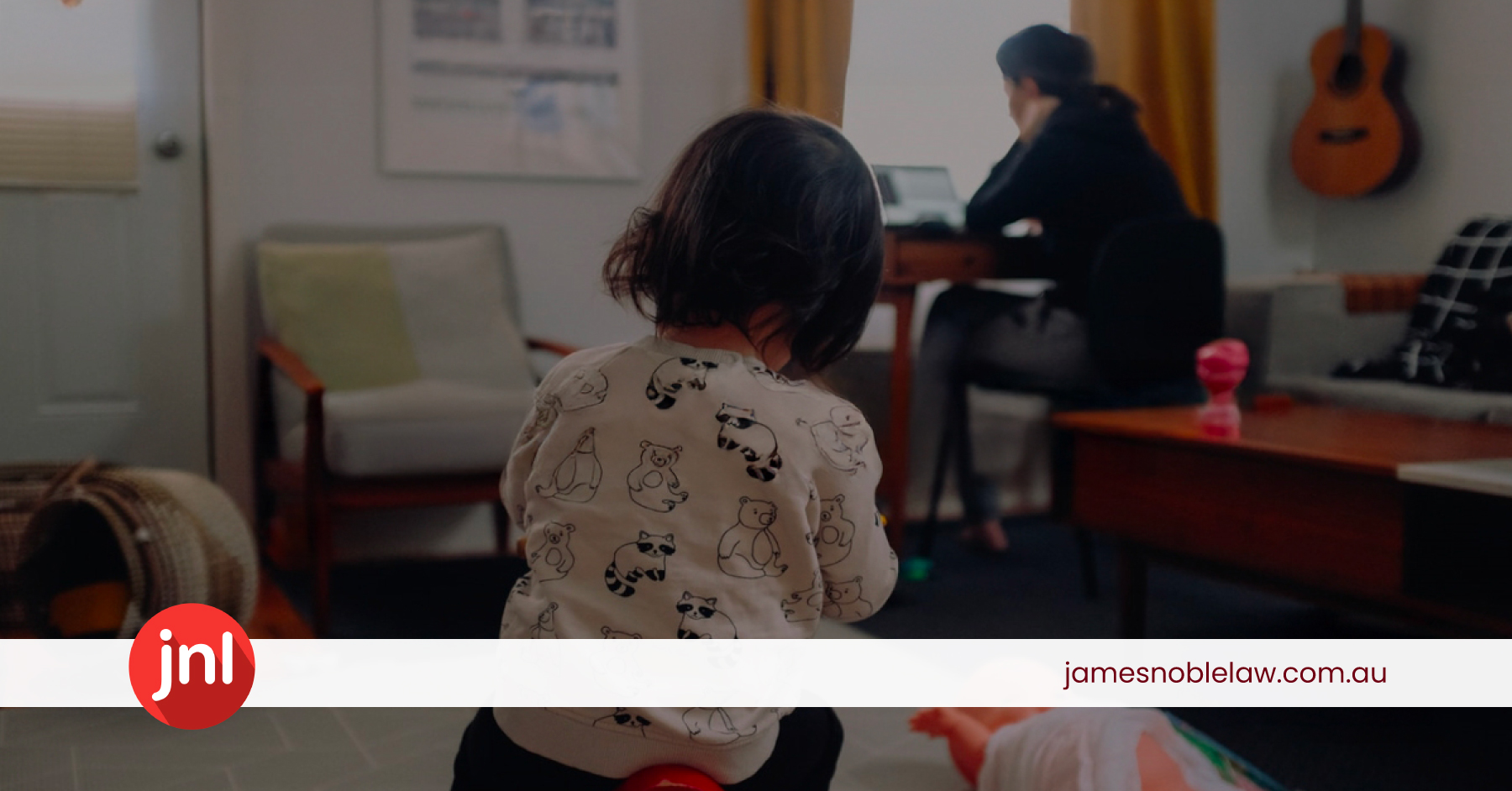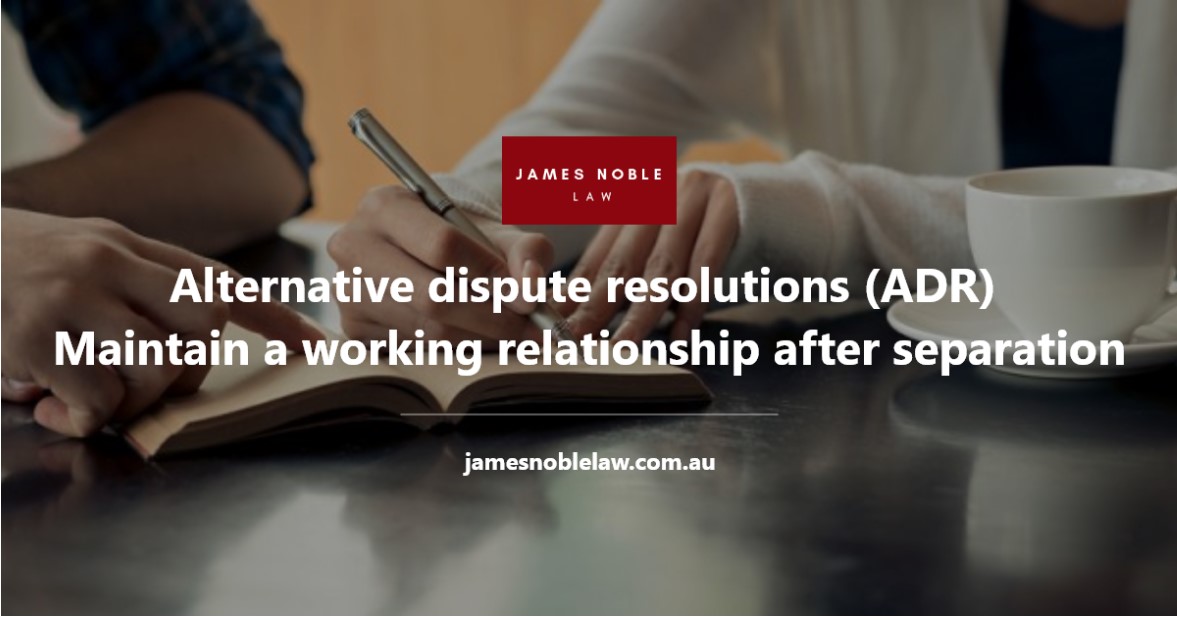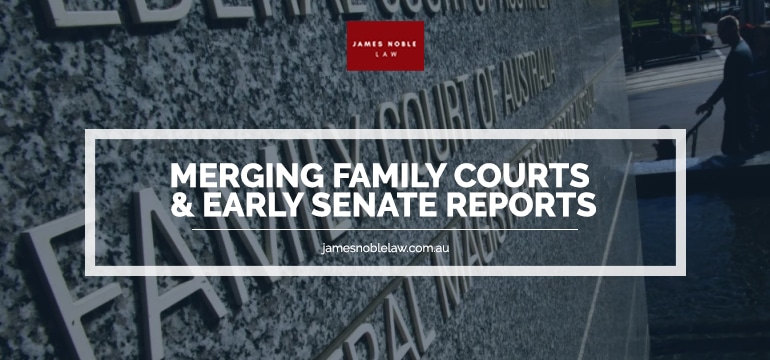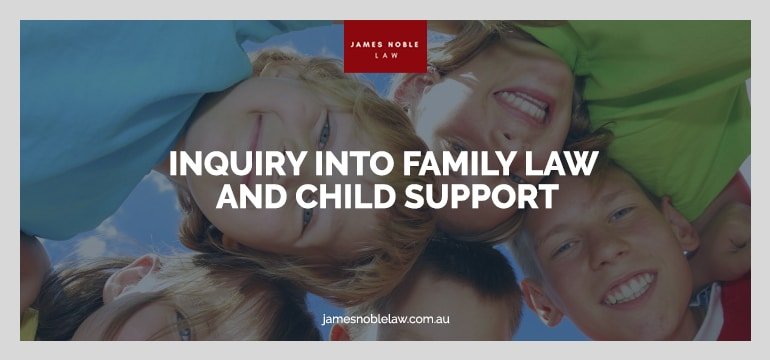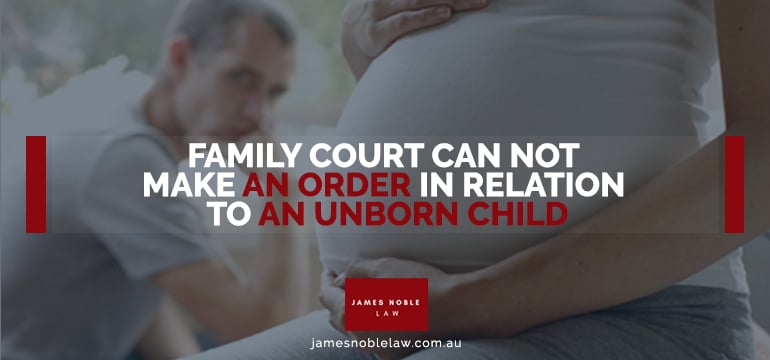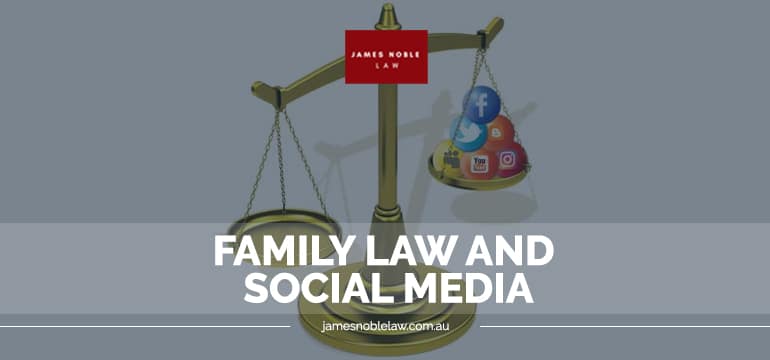5 Best Suggestions for co-parenting during COVID-19 in Australia
Best 5 Suggestions for co-parenting Australia during COVID-19 Today we brought five suggestions for you on "co-parenting Australia". The Australian Government restrictions are frequently changing to ensure the safety of the people and this means there has been more people in self-isolation and the norm of daily living has changed. Parents are working from home and schooling their children at home also, to a large degree, has moved online which can be stressful for many families. For parents who are...
Read More
Alternative dispute resolution (ADR) to Maintain a working relationship with your former partner after separation
How to avoid court? Alternative dispute resolution. Maintain a working relationship with your former partner after separation, especially if there are children For the sake of your family, especially your children, after a separation, it is important, if at all possible to do so, to maintain a working relationship with your former partner alternative dispute resolution. If only for a short period of time to help negotiate a resolution of financial and children’s issues. Seek a resolution of such issues...
Read More
Working Remotely for the best Law Firm Australia | James Noble Law
Working Remotely with The Best Law Firm Australia, ain't no joke! To successfully start working remotely for the best law firm in Australia, it is imperative that you have excellent Workplace Communication in place. Communication is especially important in the workplace; this is what drives increased productivity, improves morale and efficiency. It helps foster an excellent working relationship between you, your boss, and your colleagues. Therefore, at James Noble Law we start the day with a Microsoft Teams meeting and...
Read More
Five Simple Ways To Cut Unnecessary Costs On Your Family Lawyer
As with many professional services sectors, law professionals generally really only sell their time. And, as we all know very well, time is money. So if you are searching for legal advice the family lawyer cost can be higher depending on the expertise level of your attorney. In the interest of saving everyone time (and money), we've compiled a shortlist of items to consider if budget is a factor (and let's face it that it probably is!). Keep these in...
Read More
How To create a Airtight Binding Financial Agreements ? How Tight Is An Airtight BFA?
Preparing an Airtight Binding Financial Agreements Binding Financial Agreements (BFA), also referred to as “pre-nups” are created when two parties have made a fully informed decision to enter into a binding agreement. The creation of an Airtight Binding Financial Agreements requires the parties to disclose their financial position, provide reasonable time to consider the agreement and obtain independent legal representation to avoid any undue influence or pressure on the other party. This document effectively allocates assets and other financial resources...
Read More
Financial Settlement, Debt, and Home Loans. More Money. More Problems.
Financial Settlement issues What Happens to Home Loans, Mortgages, and Properties After Divorce? One of the biggest concerns of parties whose marriage has broken down is what happens to financial settlement resources and debt during this process. When it comes to matrimonial assets, one of the main considerations is whether the party who resides in the main property has the capacity to maintain the residence during interim and final proceedings. Whilst it is important that the matrimonial home is maintained...
Read More
Enacting Recovery Orders To Bring Back Your Kids by Parenting plan or Agreement.
What is a Parenting Plan? A parenting plan is a plan which puts the best interests of the child first. It is your and your partner's commitment to your children and their future. A parenting plan is a written agreement between parents under practical issues of parental responsibility. What Happens if a Party breaks Parenting plan or arrangement and Does Not Return the Child? If you are concerned that your child may not be returned to your care after spending...
Read More
Financial help for single mums During Pregnancy & After The Birth
Who Liable to provide Financial help for single mums During Pregnancy? Financial help for single mums: What happens if you are pregnant and the father is no longer willing to raise the child or provide pregnancy financial assistance? Is the father still liable to pay relevant costs? Essentially, the answer is - yes. The biological father of a child is liable to Financial help for single mums During Pregnancy and also the costs associated with pregnancy and raising the child....
Read More
How To Remove The Executor of Will Of Your Estate?
HELP! I've Got An Executor Dispute: Can I Remove an executor of a will? It is not uncommon for clients to raise they are frustrated with how the executor of a will is administrating a deceased person’s estate. These complaints typically arise from beneficiaries to a Will, being the category of person who benefits under the will. Before dealing with these issues, it is necessary to understand the nature of the executor of will, their position, and the responsibilities this...
Read More
What are family report writer interview questions, examples, recommendations?
What are family report writer interview questions, Examples, Recommendations, and Interview. What is Family Report? Before talking about family report writer interview questions, let's talk briefly about Family Report. A family report is a document written by a court-appointed family counselor. It provides an independent assessment of the issues in the case and can help the trial judge decide on child / rental arrangements. This can help the parties reach an agreement. What does a family report writer do for...
Read More
Obtaining Australian Child Passport After Separation
How to Obtain an Australian Child Passport for My Child After Separation? Before obtained an Australian Child Passport, the Passport Office requires the child’s parent or any other person with parental responsibility to provide written consent to the passport being issued. Therefore, the easiest way to obtain an Australian Child Passport is to receive consent from the other parent. However, this will not always be possible. In circumstances where the other parent refuses to provide written consent or does not...
Read More
Why Is My Family Law Matter Taking So Long?
What should you do if Family Law Matter makes Delay? Merging Family Courts and Early Senate Reports The current structure of the Family Court of Australia and Federal Circuit court of Australia have led to systematic backlogs of cases, with Judges required to hear a multitude of matters on a single day. This has led many parties who have proceedings before the Court to be frustrated, and rightly so. The planned merging of the Family Court of Australia (FCA) and...
Read More
Family Law Property Valuation Roulette
Property Valuation in Family Law Proceedings Commonly when two parties separate or divorce, the family home (also referred to as the matrimonial home) is typically the most valuable asset. As with most separations, one party moves out of the matrimonial home following the breakdown of the relationship, leaving questions of how much the house is worth? and which party owns it? Assets such as real property, which are generally the most fought over, require an updated valuation so the Court...
Read More
Family Law Act 1975 Australia | What’s Best Fair In Love & Law?
What is the family law act 1975? Family law act 1975 is the Laws relating to marriage and divorce and the reasons relating to marriage and with it and otherwise the financial responsibility of the parents of the children and the de-facto relationship and some other matters relating to divorce. What is the purpose of the Family law act 1975? The Family Law Act 1975 focuses on the rights of children and the responsibilities that every parent has towards their...
Read More
Online Divorce Application Options You Might Not Know About
Online Divorce Application Options What Happens If My Ex Won’t Sign the Divorce Papers? Divorce can be a very difficult time in both parties’ lives. But here you can find a better solution for Online Divorce Application. Sometimes after the breakdown of a marriage, one party has difficulty in accepting this fact and may refuse to sign divorce papers. Other situations might involve a controlling ex-partner or parties who believe they will get back together. For whatever reason, if the...
Read More
Inquiry Into Family Law System and Child Support
Family Law System and Child Support What is the joint parliamentary committee inquiry about? The Prime Minister issued a media release on 17 September 2019 announcing the Government will undertake a Joint Parliamentary Committee of both the House and the Senate to conduct an inquiry into the Family Law system. The inquiry is to be led by Liberal MP Kevin Andrews. The inquiry was initially triggered by accusations that the court system as it currently stands is failing vulnerable Australians....
Read More
Can Family Court Make An Order In Relation To An Unborn Child?
Can Family Court Make An Order In Relation To An Unborn Child? No! The Family Court is powerless to make orders prior to the birth of the child. As a family lawyer, I often receive inquiries from soon-to-be fathers wanting to know their rights in relation to their unborn child. In a recent matter, the father gave instructions in relation to his partner’s pregnancy. The expected date of birth of the child was three weeks from the date I received...
Read More
Binding Financial Agreement & Provisions of Family Law Act
Binding Financial Agreement & Provisions of Family Law Act While binding financial agreement, Parties may wish to determine the ownership of their assets and liabilities whilst contemplating or living in a relationship (including same-sex relationships), contemplating entering into a marriage, during a marriage or after a divorce, may wish to set out terms in an agreement which determines how their property and liabilities should be determined should their relationship break down. Provisions in relation to Binding Financial Agreement came into...
Read More
Bankruptcy Act – AustLII and Divorce Loopholes
Bankruptcy Act 1996 and Family Law Act 1975 - AustLII and Divorce Loopholes Under the bankruptcy act 1966 law, creditors are unable to claim against a person’s estate if that person has declared bankruptcy. However, there are certain situations where the bankruptcy act 1966 can be orchestrated to appear this way, so as to purposely avoid paying debts. Calls for Divorce Loophole Crackdown: Criminals Skirting the Law The recent case involving Michael Williamson, disgraced former Health Services Union Boss, highlights...
Read More
Family Law and Social Media
Social Media Feuds: How It Can Affect Your Family Law Matter Almost 11 Million Australians will use Facebook over the course of 2019. Like most people, Facebook is used as a platform to share your thoughts and experiences or listen to others. As such, it is not uncommon to across someone who has a frustrated or even angry view on a particular event or experience. Whilst this is often though of as a cathartic process, your electronic communications can easily...
Read More


